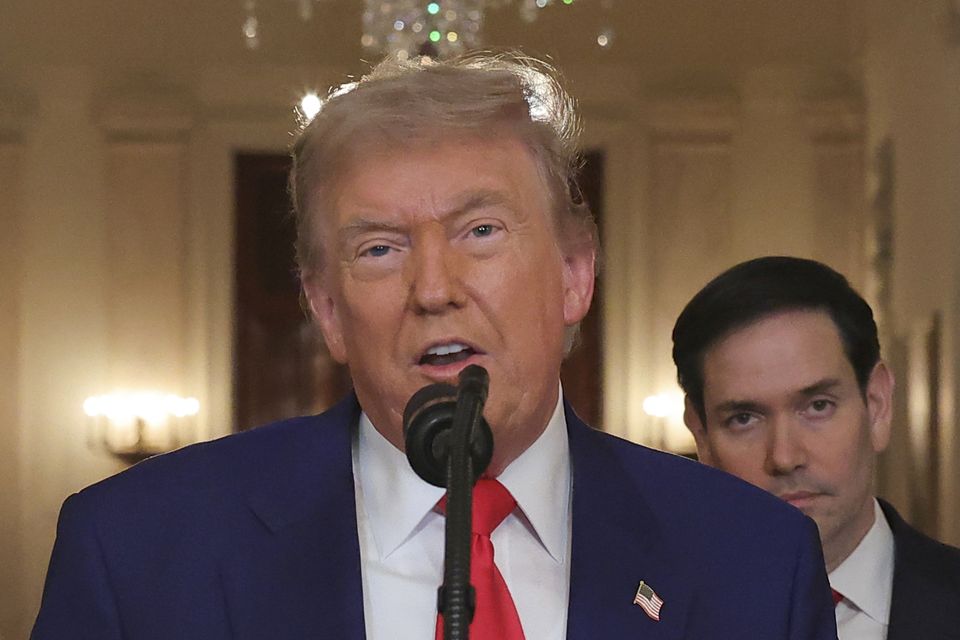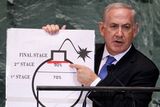The Irish Independent’s View: Cessation of US-Iran hostilities will need diplomatic steps
Donald Trump (Carlos Barria/AP)
In its early days on the international stage, the United States was viewed as an honest broker by Iran. The strategic location and oil reserves have made Iran an important player in the Middle East. Caught between the imperial game playing in the region of the British and the Russians, the Persians regarded the US as a friendly nation.
All that changed after World War II, when the US emerged as the dominant superpower in global affairs.
The Cold War saw US interest in Iran turn from cordial to hostile. The CIA-backed overthrow of the democratically-elected government of Mohammad Mosaddegh in 1953 was carried out under the cloud of communist fears. In reality, it was about the control of oil supplies for the Western powers.
Today's News in 90 Seconds - June 24th
The autocratic rule of the US and British-backed Shah disrupted the structures in the country, heightening social, religious and tribal tensions.
The seeds of the Islamic Revolution of 1979 were sown in the 1953 coup. The subsequent Iran hostage crisis, when 66 American diplomats and civil staff were taken hostage at the US embassy in Tehran, ended diplomatic relations between the two countries, which have never been restored since.
The only high point was a thaw during Barack Obama’s time in office
The US and Iran have engaged in proxy wars ever since in the Middle East and beyond, from the arming of Saddam Hussein in Iraq, to the funding of terrorism.
The only high point was a thaw during Barack Obama’s time in office, resulting in a nuclear agreement in 2015, but this was short-lived.
Now nuclear armament is the premise for the latest outbreak of hostilities, with the US joining Israel in targeting Iran’s nuclear facilities. US bombers targeted three sites in an effort to curtail Tehran’s nuclear programme. But Donald Trump has echoed the sentiments of Israeli prime minister Benjamin Netanyahu in raising the possibility of a regime change in Iran.
The US and Israel have speculated about assassinating Supreme Leader Ayatollah Ali Khamenei, who has now gone into hiding as his foes boast they know how to get at him. But the killing of Iran’s leader could further destabilise the Middle East.
Iran has now followed through on threats to strike back against the US and Israel, targeting military bases in Qatar. Shipping in the region, key for the flow of oil to the rest of the world, is a potential further target. Iran’s military capabilities, however, have been severely limited by Israeli airstrikes on long-range ballistic missile launchers.
Iran still has a formidable arsenal of shorter-range missiles and drones. But the capacity of its proxies, Hamas in Palestine, Hezbollah in Lebanon, and the Houthis in Yemen, has been dramatically reduced over the past 18 months. The US has also taken precautions over the past few weeks, dispersing its naval presence in the region and beefing up air defences, to try to ensure it presents as hard a target as possible.
Diplomatic efforts have so far been fruitless as the conflict between Israel and Iran has escalated with the direct intervention of the US.
Cool heads are not prevailing. While relations between the US and Iran won’t be repaired overnight, a cessation of hostilities is the priority for all concerned.
Join the Irish Independent WhatsApp channel
Stay up to date with all the latest news















